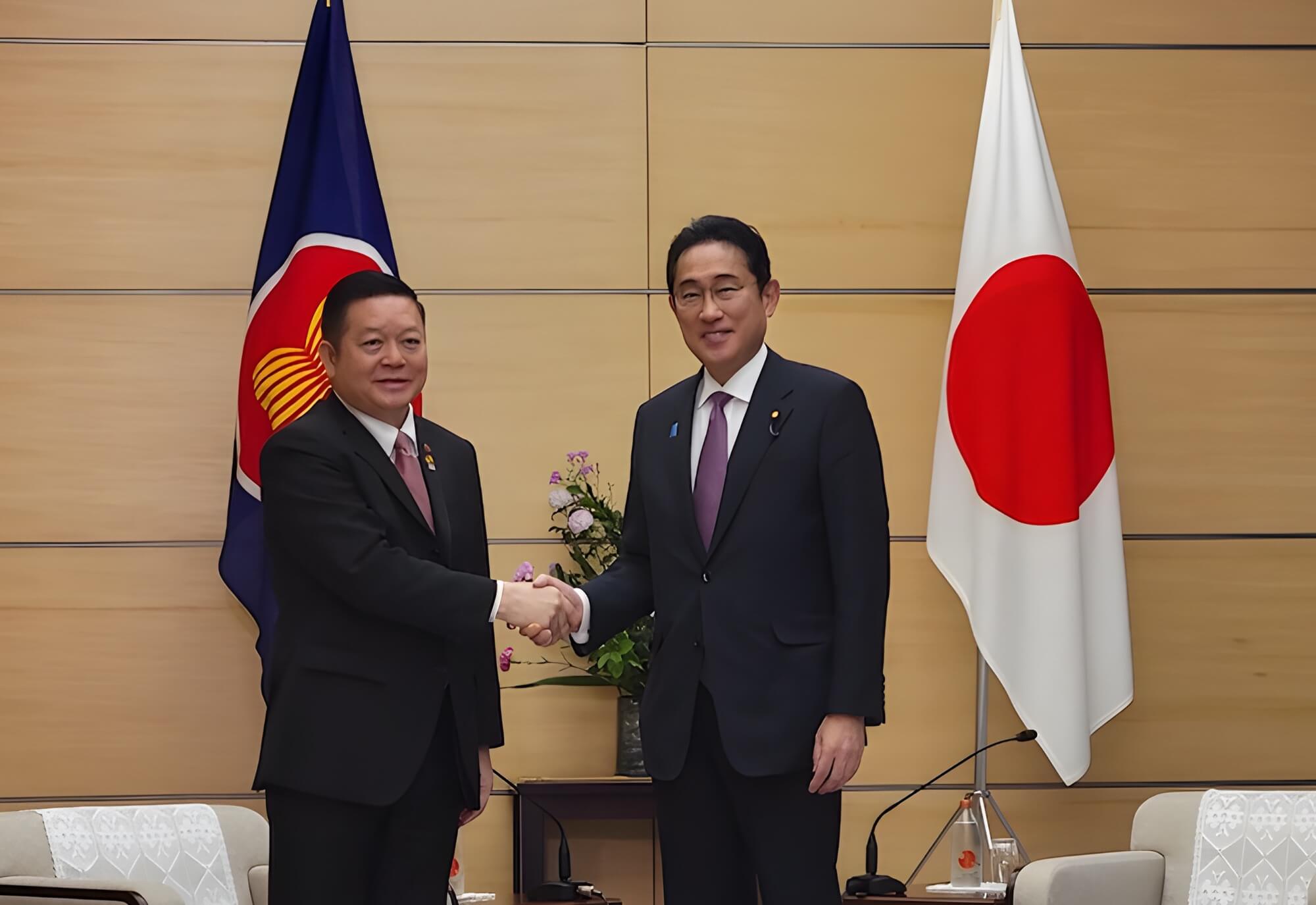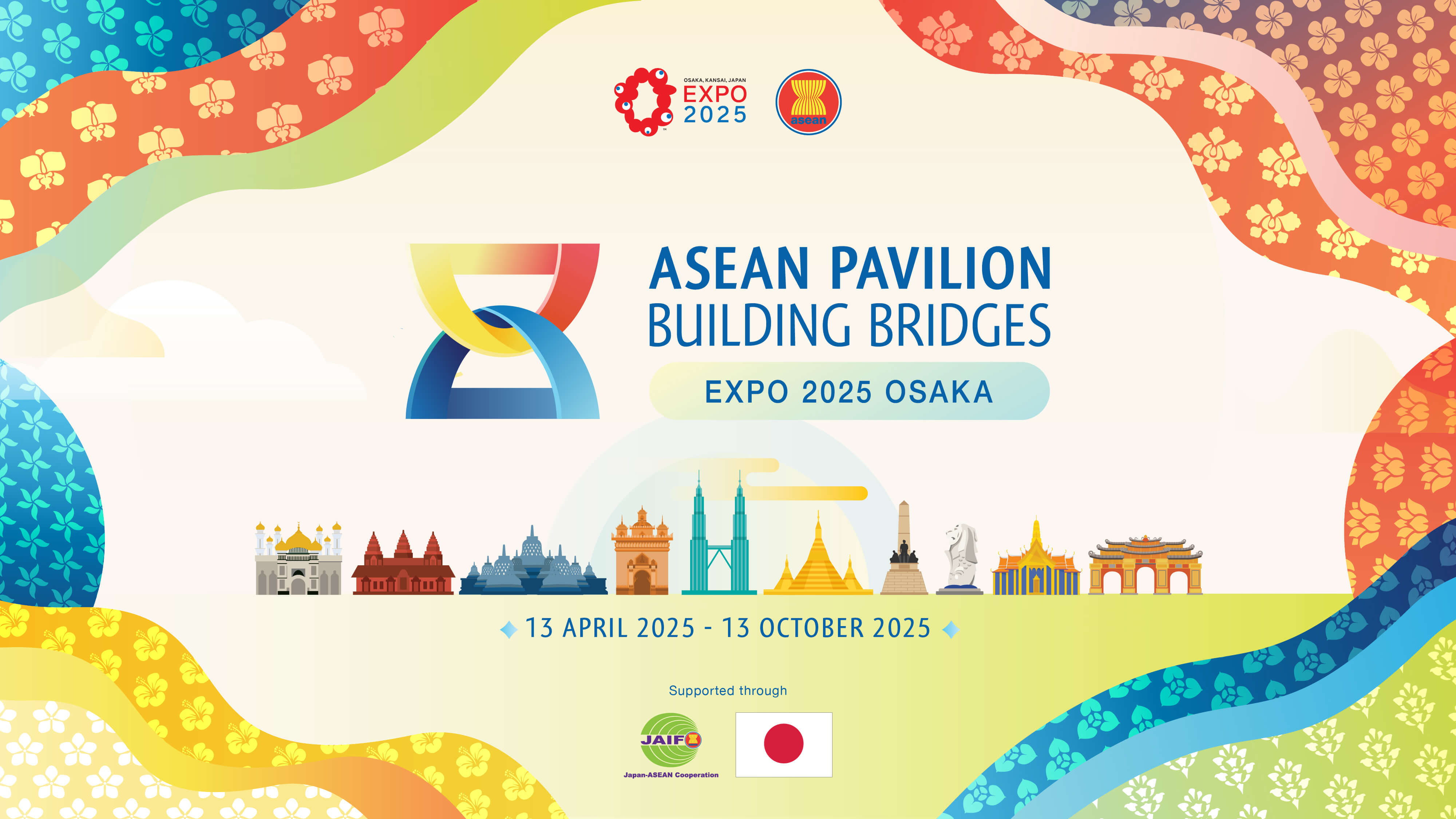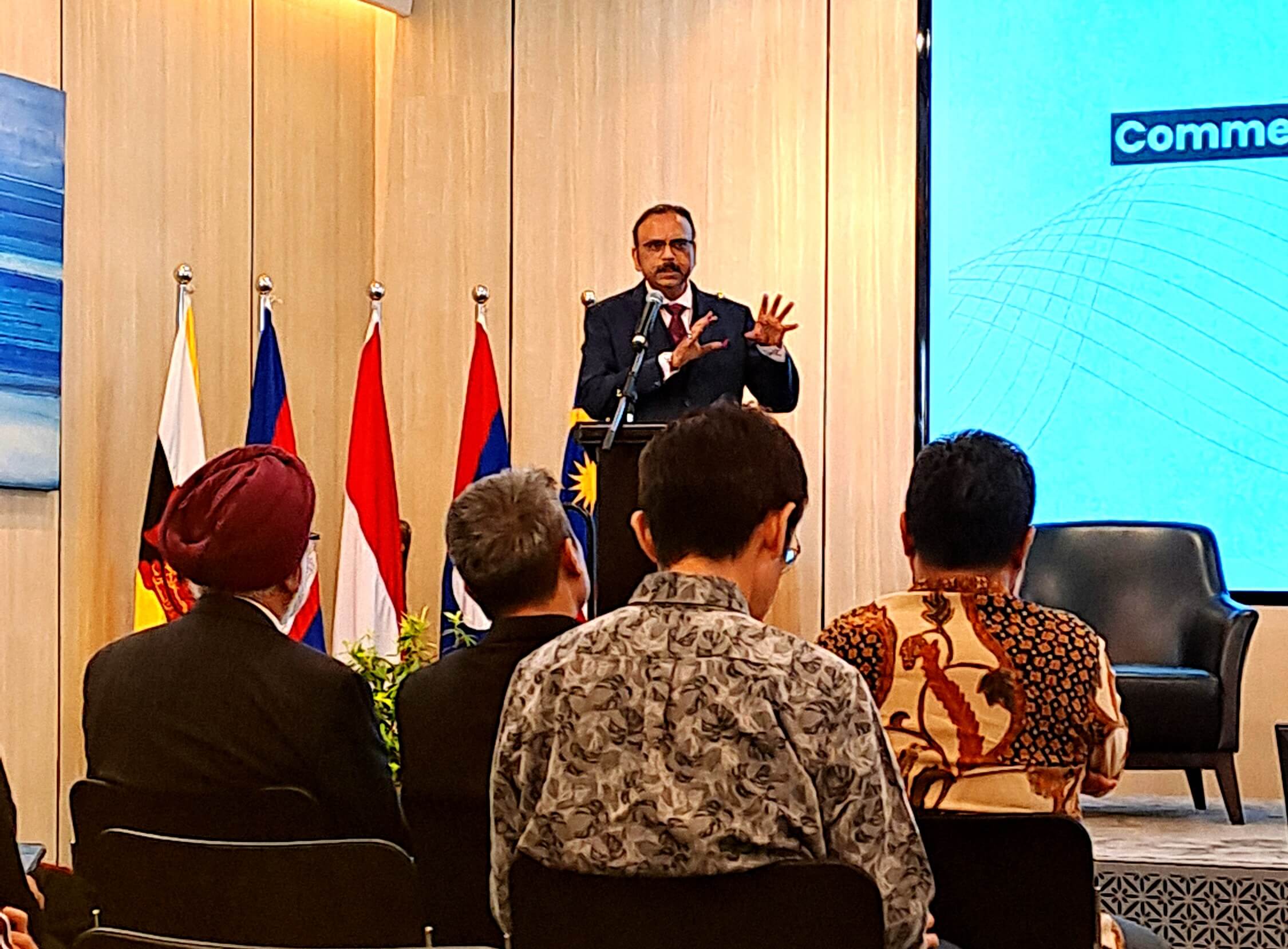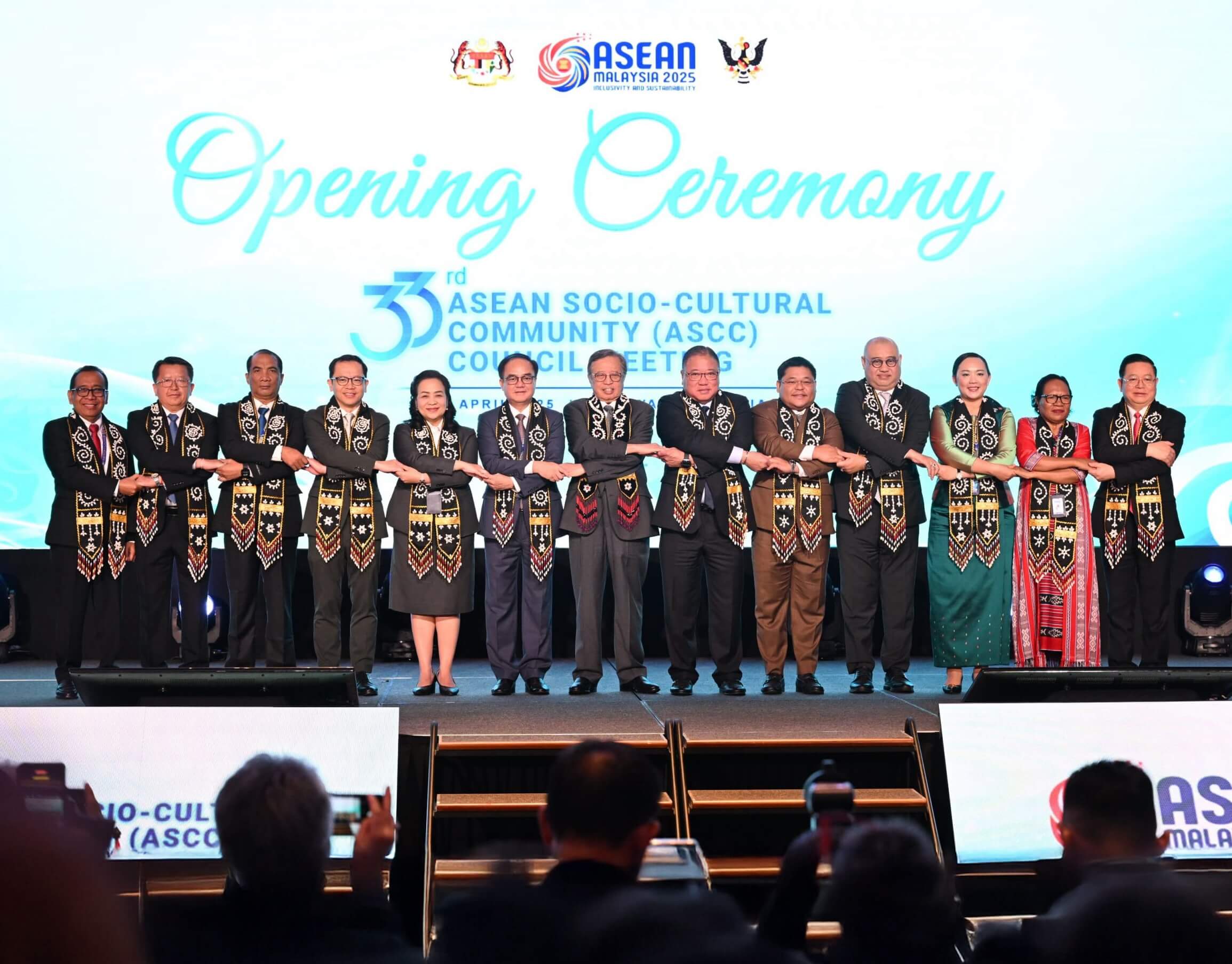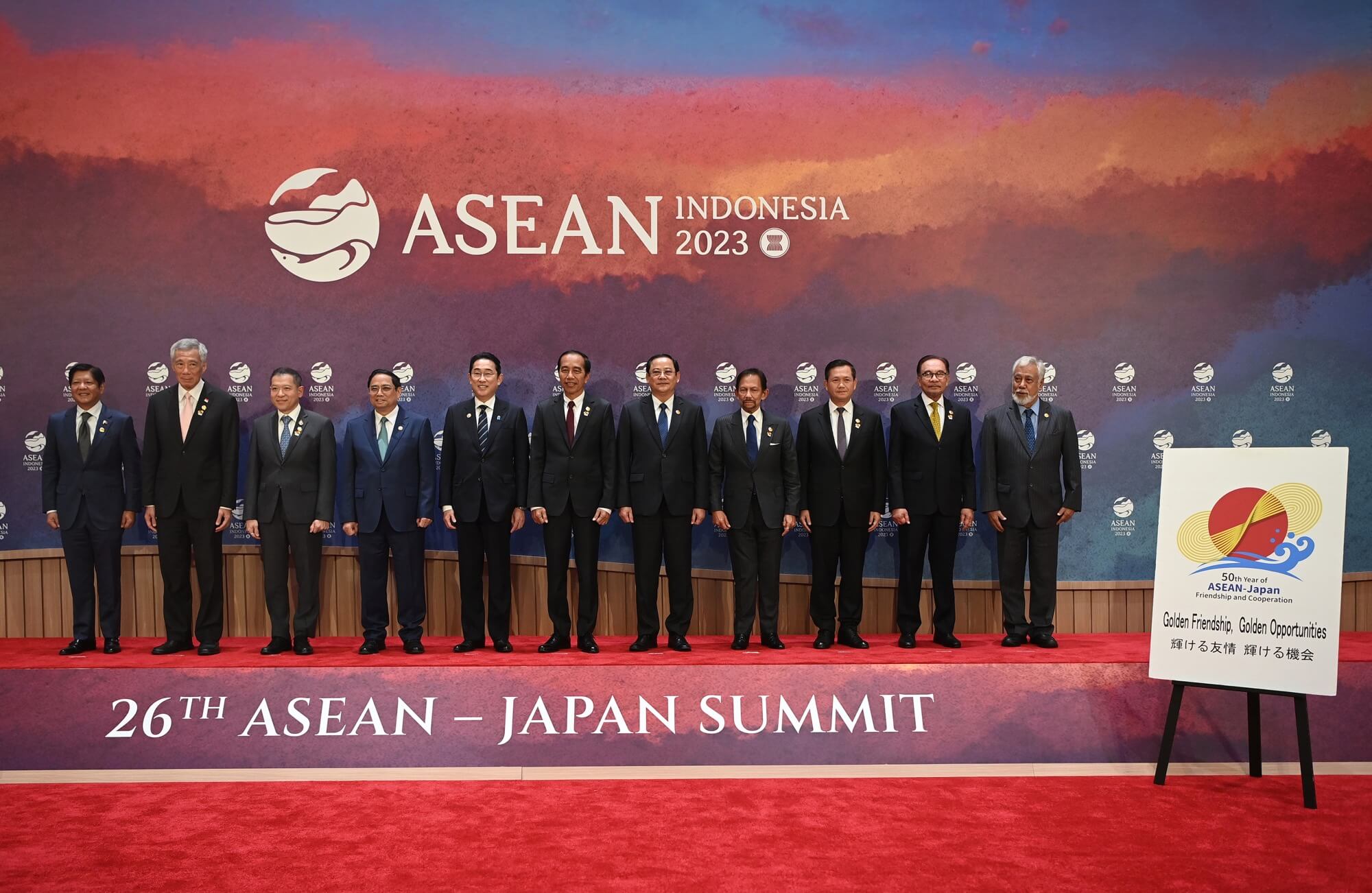



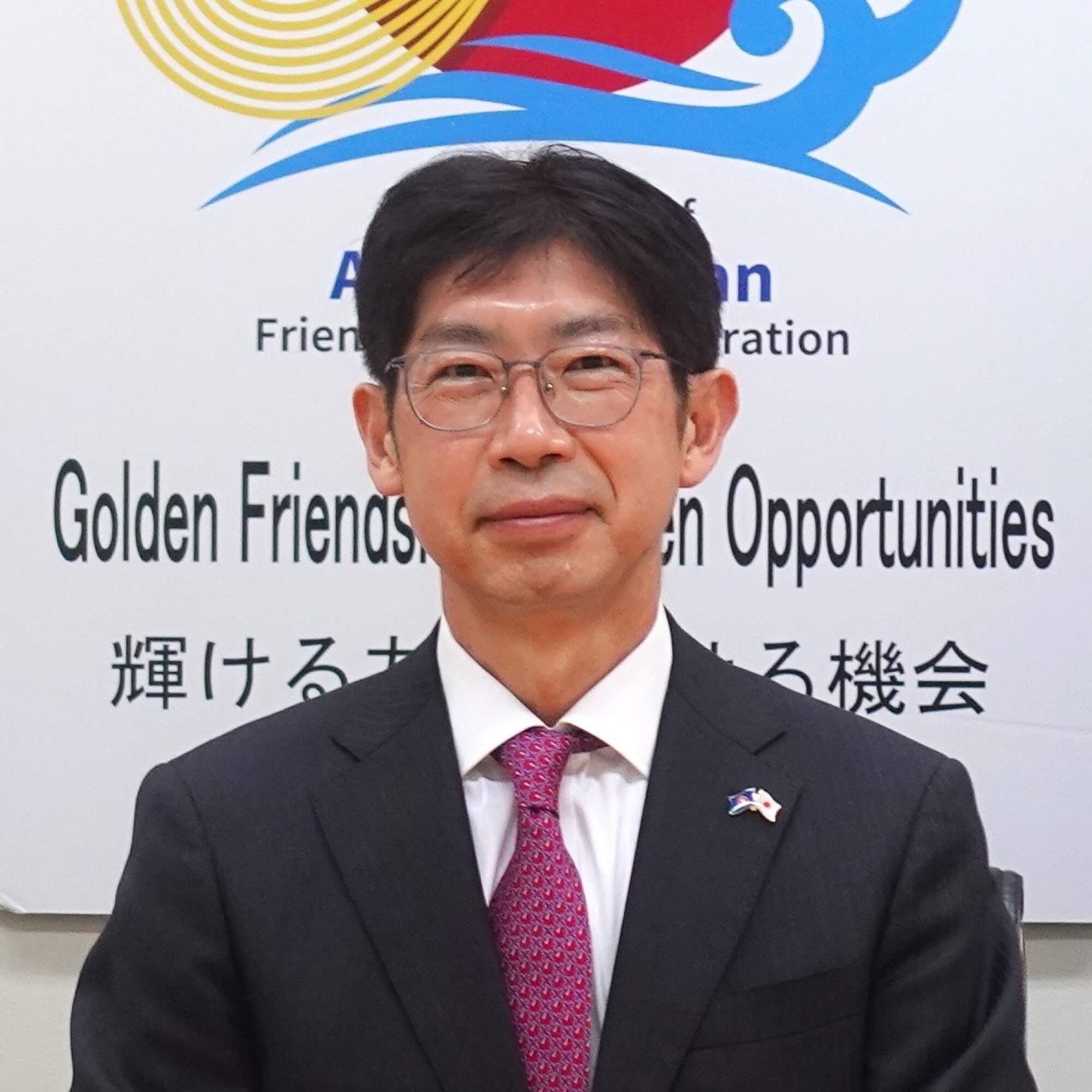
This year marks the 50th Year of ASEAN–Japan Friendship and Cooperation. The relationship between ASEAN and Japan started with the Forum on Synthetic Rubber in 1973, six years after ASEAN was established in 1967. For the past 50 years, Japan has been closely working with ASEAN to promote peace, stability, and prosperity through ever-expanding concrete projects for the benefit of the people. Four primary reasons for this important relationship are pointed out below.
Importance of ASEAN for Japan
First, ASEAN is located in a strategically important position in the Indo-Pacific region. ASEAN and Japan enjoy geographical proximity and many commonalities as a maritime nation, while facing common challenges in the region, such as ensuring the freedom of navigation on important sea lanes. ASEAN and Japan have been closely working together to tackle those challenges.
Second, ASEAN is a growth centre of the world. It is a prime manufacturing centre for Japanese companies and holds a potential consumer market with a population of about 670 million. Furthermore, the region boasts numerous fast-growing startups tackling global issues such as energy transition, decarbonisation, and digitalisation.
Third, ASEAN has become a hub of multilayered regional cooperation. Japan has been participating in ASEAN-led regional cooperation frameworks that have developed over time. These include the ASEAN Regional Forum (ARF, 1994), ASEAN+3 (APT: Japan, China, and the Republic of Korea, 1997), the East Asia Summit (EAS, 2005), and the ASEAN Defense Ministers Meeting Plus (ADMM-Plus, 2010), and so forth. For each framework, summits and ministerial meetings became institutionalised and regularised, paving the way for multilayered bilateral and multilateral diplomacy.
Fourth, it enables Japan to strengthen its relationship with the so-called Global South. Prime Minister Kishida highlighted relations with Global South countries as a key player for Japan’s future and mentioned, “Southeast Asian countries are the closest and most crucial partners for Japan,” in a lecture at Johns Hopkins University in the United States in January of this year. We believe that strengthening relations with the close and diverse ASEAN will be the gateway to Japan’s diplomacy with the Global South.
What we have achieved—Common areas of interest and cooperation
Looking back on the 50 years of ASEAN-Japan cooperation, Japan has worked with ASEAN in various fields. One way to lay out our cooperation is by focusing on ASEAN-Japan ASEAN Outlook on the Indo-Pacific (AOIP) Cooperation projects. The AOIP, established by ASEAN in 2019, set objectives based on the principles of ASEAN unity and centrality, inclusiveness, transparency, and respect for international law, among others. AOIP guides cooperation in promoting an environment for peace, stability and prosperity in the region, highlighting four priority areas of cooperation: maritime cooperation, connectivity, the Sustainable Development Goals (SDGs), and economic and other possible areas of cooperation.
Japan expressed its full support for the AOIP in 2019 and was the first among ASEAN’s partners to do so. In 2020, ASEAN and Japan issued the Joint Statement on Cooperation on AOIP at the Summit meeting. In February this year, former Foreign Minister Hayashi announced Japan’s support for mainstreaming AOIP. In March, Prime Minister Kishida announced a new contribution of 100 million US dollars to the Japan-ASEAN Integration Fund (JAIF). In September, he attended the ASEAN Indo-Pacific Forum (AIPF) and announced the ASEAN-Japan Comprehensive Connectivity Initiative, providing maximum support for mainstreaming and implementation of the AOIP.
Concrete projects under AOIP
Concrete actions include the following initiatives as progress reports on Japan’s Cooperation for the ASEAN Outlook on the Indo- Pacific.
Maritime cooperation. Japan as an archipelagic nation fully understands the importance of maritime cooperation. With strong commitment to addressing maritime safety and security challenges in the region, Japan has contributed to the efforts in maritime cooperation with a funding of 1 billion Japanese yen or almost 7 million US dollars through JAIF. These include initiatives against piracy and illegal, unreported and unregulated (IUU) fishing, strengthening capacity building for marine debris reduction, joint hydrographic survey of the straits of Malacca and Singapore, and more expanding projects.
Connectivity. Collaboration in connectivity is critically important for narrowing the development gaps and supporting deeper integration of the ASEAN Community. Japan has continuously facilitated a variety of cooperation, ranging from people-to-people connectivity including the Japan East-Asia Exchange for Students and Youths or JENESYS; Initiative for ASEAN Integration (IAI) Attachment Program to quality infrastructure such as ASEAN-Japan Transport Partnership including Luang Prabang Action Plan, which was adopted this November as a new action plan of the transport sector for the next decade.
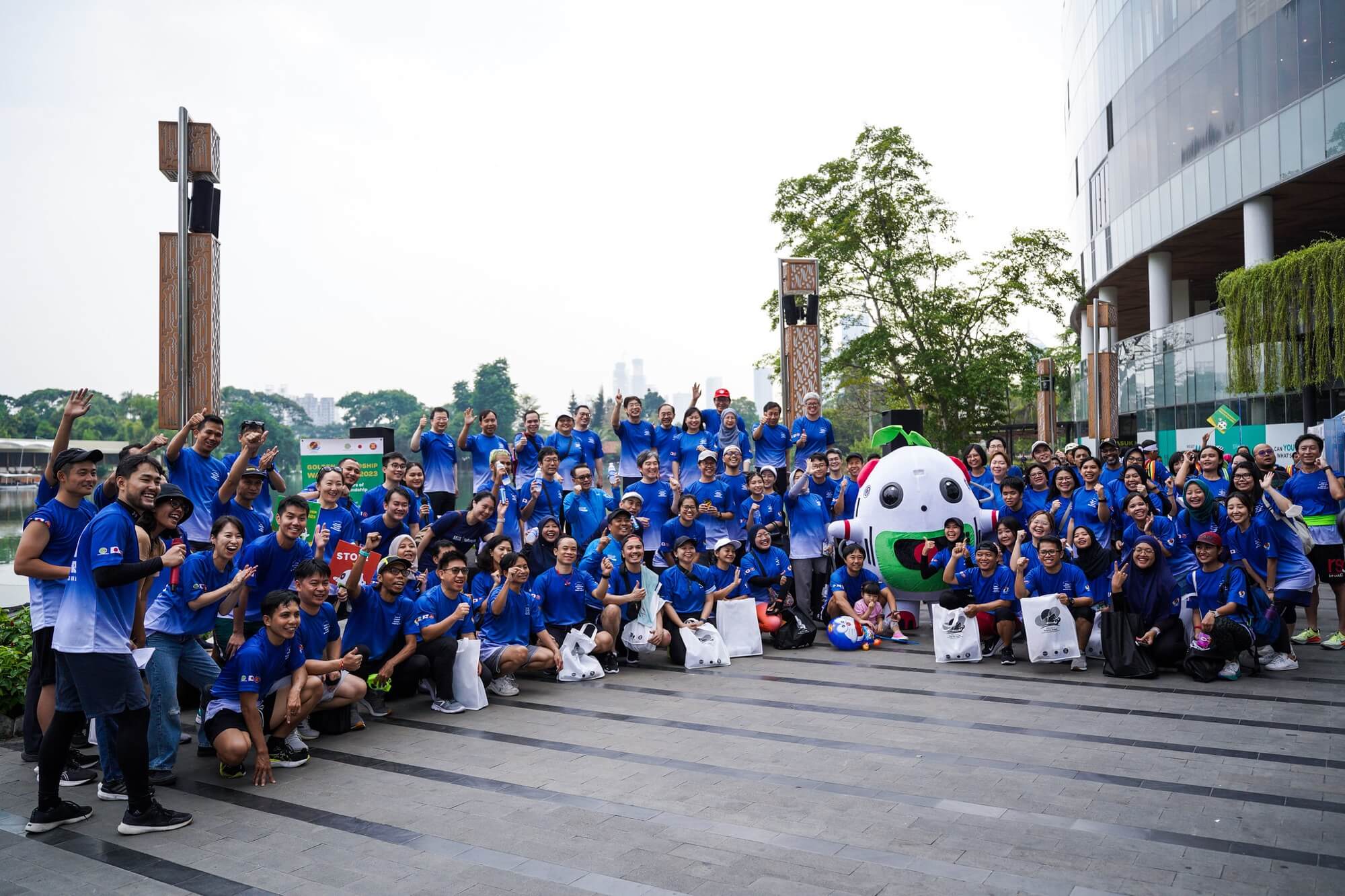
UN Sustainable Development Goals. Japan’s vision towards achieving the UN Sustainable Development Goals is paramount and pledges to “Leave no one behind,” in the implementation process. Japan’s efforts are based on the concept of human security and extends across ASEAN in many fields: for health sector through ASEAN Centre for Public Health Emergencies and Emerging Diseases (ACPHEED); for disaster management in cooperation with AHA Centre; and for the environment and climate through Strategic Program for Japan Climate and Environment (SPACE).
Economic and other possible areas of cooperation. Cooperation in the economic sector and other areas of cooperation are imperative for Japan to further strengthen economic ties with ASEAN and further across the Indo-Pacific. Japan will extend support to the region in the field of cyber security through ASEAN-Japan Cybersecurity Capacity Building Centre programme, agriculture with the ASEAN-Japan Midori Cooperation Plan and ASEAN-JICA Food Value Chain Development project; and other economic cooperation, for example, through the ASEAN-Japan Economic Co- Creation Vision and Future Design and Action Plan.
One notable area of cooperation is in the field of law and justice. The ASEAN-Japan Special Meeting of Justice Ministers and related Meetings, the ASEAN-G7 Justice Ministers’ Interface and ASEAN-Japan Special Youth Forum took place for the first time this year. ASEAN and Japan confirmed their commitment to promoting fundamental values such as the rule of law, and held discussions on the initiatives to promote strategic cooperation between ASEAN and Japan in the field of law and justice.
This year, we had 5 special ASEAN-Japan Ministerial Meetings on the occasion of 50th anniversary: Ministerial Meetings on Finance and Central Bank Governors (the Republic of Korea, May), Justice (Japan, July), Agriculture and Forestry (Malaysia, October), Disaster Management (Viet Nam, October), Tourism Ministers’ Special Dialogue (Japan, October). In addition, ASEAN-Japan Business Week took place in Japan in June.
In Jakarta, the Mission of Japan to ASEAN also had a couple of Commemorative Events to enhance awareness of ASEAN-Japan relationship by inviting ASEAN Member States and other partners, such as ASEAN-Japan Fair (September) and Golden Friendship Walk and Run 2023 (November).
“Golden Friendship, Golden Opportunities”
The highlight of the 50th Year of ASEAN-Japan Friendship and Cooperation is the ASEAN-Japan Commemorative Summit in December with the main keywords of “trust” and “co-creation.” Since the Fukuda Doctrine in 1977, Japan has emphasised “heart to heart” relations and has built up cooperation and exchanges with ASEAN over the years based on this value. The “trust” gained over the years of efforts is the greatest asset of the ASEAN-Japan relationship.
Japan and ASEAN have immense capacity to contribute to the region and the world by working together to “co-create” solutions to global and social challenges, such as energy transition, climate change, environment, digitalisation, health, and disaster prevention, for the future, based on the “trust” that has been earned through 50 years of heart-to-heart exchanges and cooperation. This year’s catchphrase, “Golden Friendship, Golden Opportunities,” embodies the spirit and depth of this relationship.
ASEAN and Japan can unleash their potential and enhance their impact by operationalising the AOIP vision and scaling up the outcomes, from the Indo-Pacific region to the world. By promoting mutual trust and co-creating solutions, ASEAN and Japan will together contribute to peace, stability, and prosperity in the region and the world.
The views and opinions expressed in this article are solely those of the author and do not reflect the official policy or position of ASEAN.
